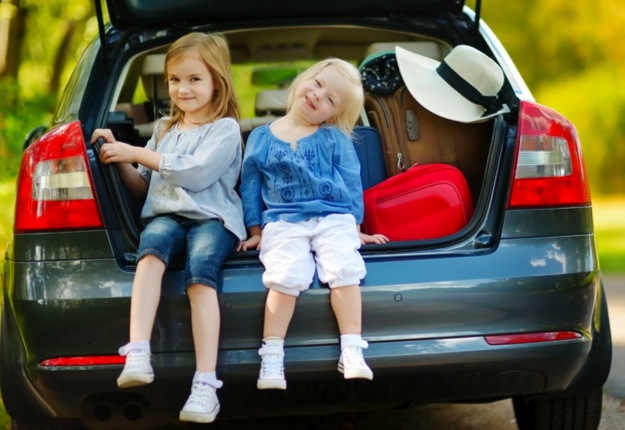What do you get when you cram the family into a confined space for extended periods of time with no TV and limited reception? Memories! The good, the bad and the ones you’ll look back on as a family and laugh about in years to come.
If it’s your first time on a road trip with kids, there is a little extra preparation required to ensure the cheers outweigh the tears and back seat meltdowns are kept to a minimum.
1. Planning
As exciting as spontaneously tearing off into the sunset sounds, failing to prepare is preparing to fail.
Plot your route and decide where you’ll stay the night before. Find out if the accommodation is suitable and book ahead.
Including older children in travel planning allows them some ownership of the trip and gives them activities to look forward to.
If expressing milk for little ones, keep it in an esky with ice packs for up to 24 hours. At feeding time, make a quick bathroom stop and run warm water over the bottle. Alternatively, measure out formula the night before and take a thermos for easy mixing.
2. Transportation
Your type of vehicle will depend on your requirements.
A two-door car is probably not big enough for luggage and passengers, and without 4WD you won’t be able to reach off-road campsites or swimming holes.
If you’re taking an extended road trip, buying a van may be a worthwhile investment.
Consult the guide to buying a van for your Aussie road trip for what to look for, mechanical checklists and special requirements for outback travel.
3. Safety & Supplies
Keep your most precious cargo safe by double checking baby seat installation, especially if transferring into a rental.
For potty trained toddlers, take a portable potty and disposable nappies to line the potty for in between towns. This makes it easy to clean up and contain the mess until you find a bin.
A first aid kit should be kept in the driving cabin complete with plasters, bandages, gauze, tape, scissors, tweezers, needles, antiseptic cream, thermometer, gloves, pain reliever and anti-diarrhoea medication.
Have 20 litres or water on board for emergencies, an additional four litres per person per day, and invest in a GPS for off-road adventures.
4. Packing
Things like the nappy bag, toilet paper, hand sanitiser, wet wipes and insect repellent should be kept within reach inside the driving cabin.
It’s also a good idea to prepare bathers and towel bags for kids for when you come across swimming holes. Sunscreen should be accessible and snacks stored out of the sun within arm’s reach.
Pack a stash of plastic bags for rubbish and ziplock bags for food, medicines and other smaller items.
5. Activities
If possible, try to swap over drivers regularly. It gives the driver’s eyes a rest and allows the Activities Captain a break from entertaining.
Have a soccer ball handy for stopping at parks and keeping the kids active, and as a last resort, a portable DVD player for watching movies.
Give older kids the task of documenting the journey with a digital camera to keep them occupied and engaged – they’ll be proud to show friends and family upon returning home.
Smaller kids can be entertained with lucky dips by individually wrapping up small toys and allowing them to open one periodically. Audio books, sing-along CDs and colouring books will also keep little hands and minds busy on the road.
With a little preparation, a lot of snacks and a Peter Combe playlist, you’ll be well on your way to an unforgettable family road trip!
Do you have any family road trip memories to share? Comment below if you do, we’d love to hear them!






















8:23 pm
5:37 pm
7:53 pm
2:21 pm
10:29 am
9:51 pm
1:11 pm
11:02 am
10:18 pm
-

-
-
mom93821 replied
- 12 Jan 2015 , 3:55 pm
Reply8:59 pm
10:13 pm
4:55 pm
7:21 am
4:46 pm
11:09 pm
10:27 pm
10:08 pm
3:00 pm
10:42 am
11:53 pm
- 1
- 2
- »
Post a commentTo post a review/comment please join us or login so we can allocate your points.